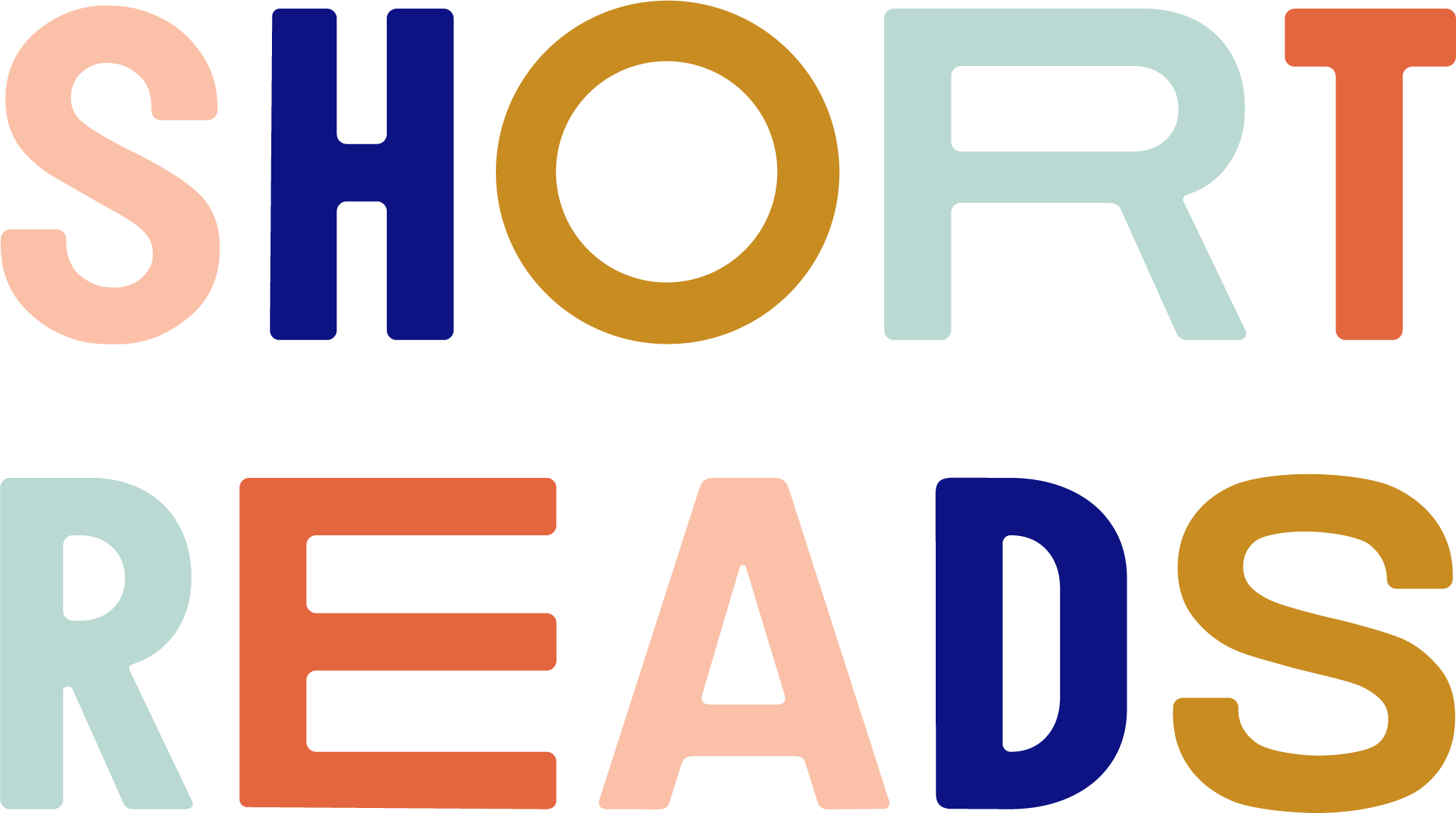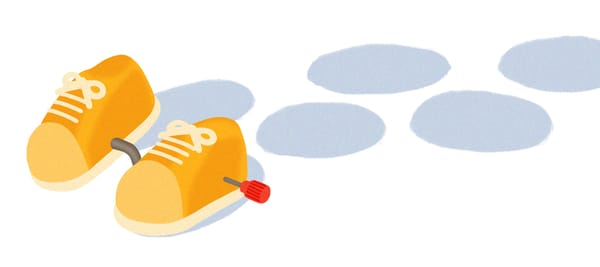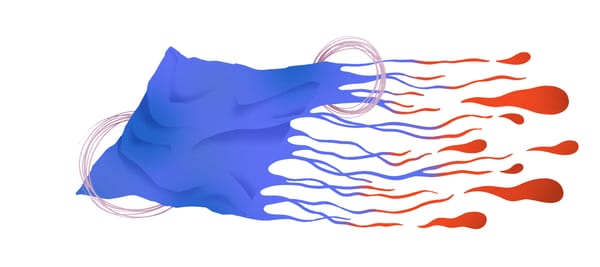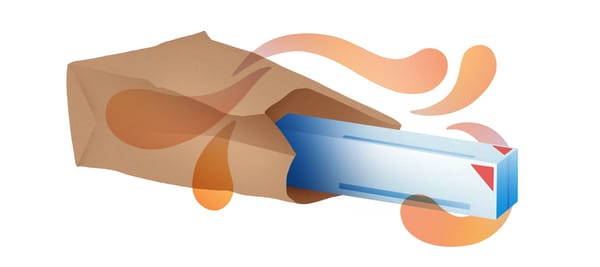Hot Chips
by Michael Copperman | Land of the Hot Cheeto, Home of the Brave.
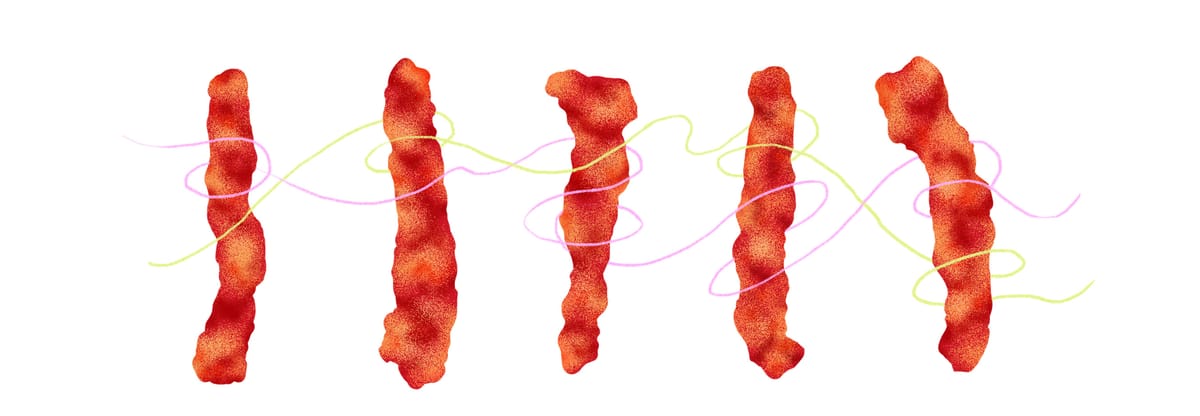
If you have ever been left, even after multiple lickings, with telltale Red-40–tipped fingers, then you already know the pleasures of Flamin’ Hot Cheeto powder maltodextrined to the exterior of a vegetable oil fried, enriched corn meal puff.
You are familiar with the burn of the cayenne, rounded out in heat-profile by ground white pepper; the dairified richness of the aerated cheddar cheese, whey, and buttermilk body of the powder, punched up by the tanginess of citric acid; the onion and garlic powder party; and the addictive umami of MSG.
I would like to note the superior texture of the puff itself—not light but dense and crunchy, but also relatively smooth once ground by the teeth.
To eat Flamin’ Hot Cheetos is never to eat just one. Once you begin, you will easily eat the entire individual serving bag. You will eat—piece by piece by piece—as many as you have. You will pour the last morsels from bag to mouth.
If you’ve made the mistake of buying a larger bag, with a half-dozen servings or more, you can expect to eat it all, and later, to find yourself bound for an unforgettable trip to the toilet.
I did not come to the Land of the Hot Cheeto as a native son. I was raised by hippies in Oregon who believed in wheat bran and oatmeal, flaxseed and nutritional yeast. My father was a doctor who’d been raised in poverty in Buffalo, New York, and so his eating habits were both extreme and disordered, health being one mandate and scarcity the other. My mother was asked to cook without salt and without sugar. Cooking vegetables allegedly ruined their nutritional value, and so we ate raw zucchini and green beans. We ate muesli, a cold mush whose origins I still do not know, though the memory of its lukewarm, pasty tastelessness still makes me shudder.
Whatever was prepared, it could not be wasted—this was the scarcity mentality—and so you’d sit there, held hostage to a third day of unsalted kidney bean casserole that had to be eaten before it went bad. When you ate an orange, you were not allowed to discard the peel—that was where the fiber was; instead, we had to chew the rind, piece by piece, or at least pretend to, until my father took it and ate it himself, scowling all the while as he performed his ethical and moral duty. I used to believe that the most decadent thing in the world was a little cup of peeled and sectioned out mandarin oranges—free from rind and skin—sitting in corn syrup, naked and sweet. I felt guilty for weeks after being served them one night at a friend’s house.
So, imagine those origins, and then picture what happens when a child raised that way ends up an elite competitor in a weight-controlled sport. I was one of the best lightweights in the country and later went to Stanford on a wrestling scholarship, where I had to make 125 pounds on the scale even at twenty-two years old. And so for me, food had to be as nutritious and controlled as possible—I still have nightmares about the taste and texture of PowerBars, which had (I would say have, but I hope their production has been ended) more in common with cardboard than any known food. And then, I moved straight from college to the rural Mississippi Delta, where I taught in the Black public schools in a place whose remoteness and poverty rendered it what public health experts often term a “food desert.”
And it was, if you ate only prepackaged meals. At the Sunflower food store, the only grocery store in forty miles, the breakfast cereal was thick with weevils. There were sundries that local folks knew how to cook—potatoes, sweet potatoes, collard greens and okra, and catfish from Delta Pride, the local catfish processing plant—but I didn’t know how to prepare any of those foods. I was living on my own, away from my family and free from the mandates of the scale and competition, and the only people I saw each day, the only humans around to show me a different way of eating and of being, were my nine-to-thirteen-year-old Black fourth-graders each day at lunch.
“Mr. Copperman, that sandwich you eating look NASTY.”
“What that brown stuff is you putting on them crackers? You say it called who-mas? Who mas is and why they don’t know who they are? Is this some kind of Asian thing—do Asian people like eating brown poop?”
“Mr. Copperman, you just been drinking from that giant keg of coffee all day. We got fried catfish and hush puppies today. Why don’t you go give that cafeteria lady some money and get you a plate?”
“Mr. Copperman, you sure you don’t want you some hot chips?”
“What you mean, you ain’t never had no hot chips?”
“Here, Mr. Copperman, just try one. Just one. Do it for me!”
“Look at he face! I think he like it. Maybe there’s hope for him yet.”
And there was hope for me, with that first spicy, savory, addictive bite, and all the bags after. Many days, when I was rushed, a couple bags of Hot Cheetos served as lunch, as snack, as pick-me-up punch after school before I taught in the Title IX enrichment program that went until six. A bag of Hot Cheetos—hot chips, as the kids called them—were my go-to bribe for in-class competitions, my gift to everyone when we reached a milestone on silent uninterrupted reading time or everyone cleared their times tables through twelve. Something that tasted so good—that was so delightfully and impossibly not nutritional, not functional, perhaps not even moral—this could be a good thing. And from that gateway drug, I did indeed become a favorite of the cafeteria ladies, who welcomed me into the world of fried chicken, butter grits and black-eyed peas, corn dogs and nuggets, fried okra and catfish and bacony collard greens, finished with a slice of banana cream pie.
Now, when I eat a hot chip, it is delicious, the ultimate snack, and it takes me back to the Delta and those kids and everything they taught me about how to eat and how to be in a world where nothing is guaranteed—how to find joy in the life we have.
Michael Copperman’s work has appeared in Oxford American, Guernica, The Sun, Creative Nonfiction, Boston Review, Salon, Gulf Coast, TriQuarterly, The Kenyon Review, and Copper Nickel, among others, and has won awards and garnered fellowships from the Munster Literature Centre, Bread Loaf Writers’ Conference, Oregon Literary Arts, and the Oregon Arts Commission. His memoir, Teacher: Two Years in the Mississippi Delta (University Press of Mississippi, 2017), about the rural Black public schools of the Mississippi Delta, was a finalist for the 2018 Oregon Book Award in CNF. His next book, Seeking Eden, about the extremes of the American subculture of wrestling as seen through the story of five-time national champion Kenny Cox’s pilgrimage into the Na Pali jungle, is forthcoming in the fall of 2026 from University of Iowa Press. More at mikecopperman.com and @MikeCopperman on Twitter.
This essay is a Short Reads original.
From the archive
Jul 3, 2024
“Courtship”
by Mark Hendrickson | Asking permission. Jul 5, 2023
“How to Build Resentments (List of Parts)”
by Dorian Fox | Taking stock.
PS/ We’re looking for flash nonfiction reprints. See the submission call →
Want more like this? Subscribe to Short Reads and get one fresh flash essay—for free—in your inbox every Wednesday. Or become a supporting subscriber and help us pay writers.

